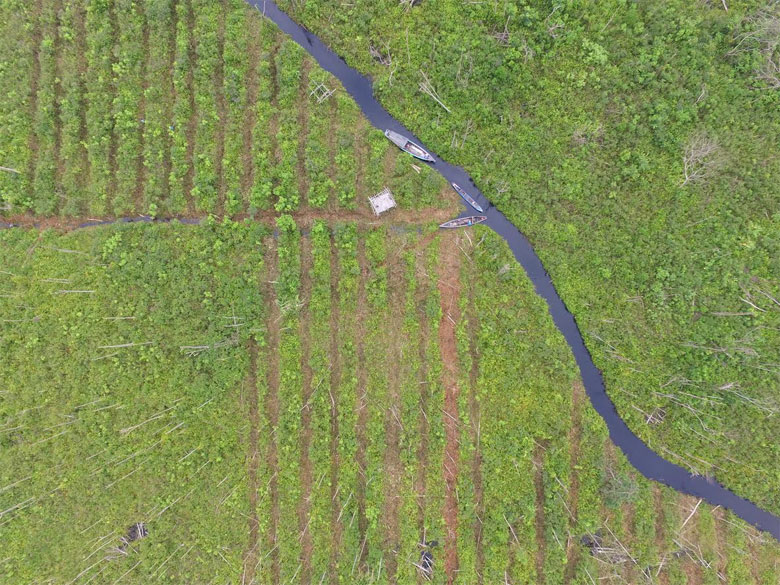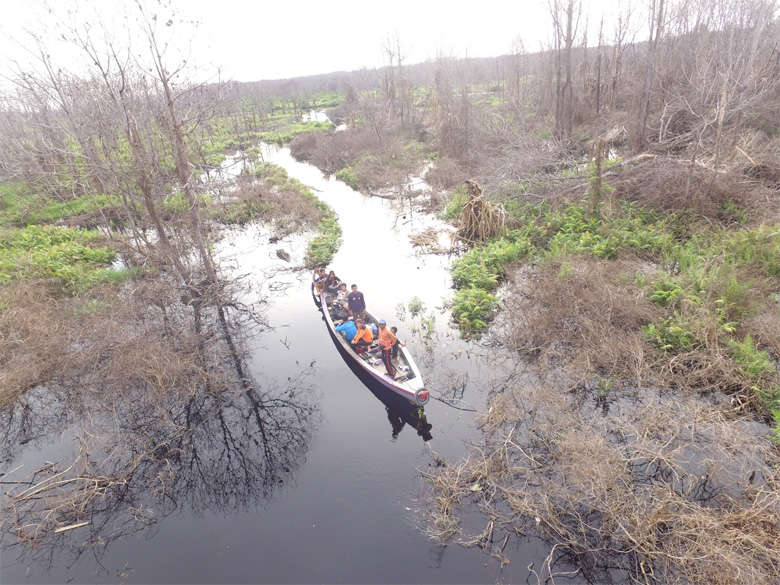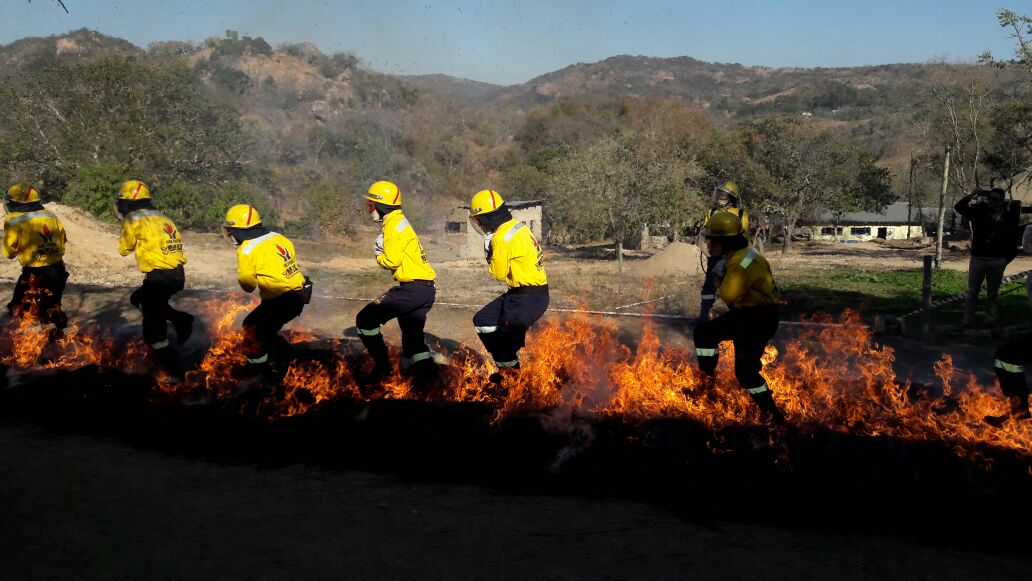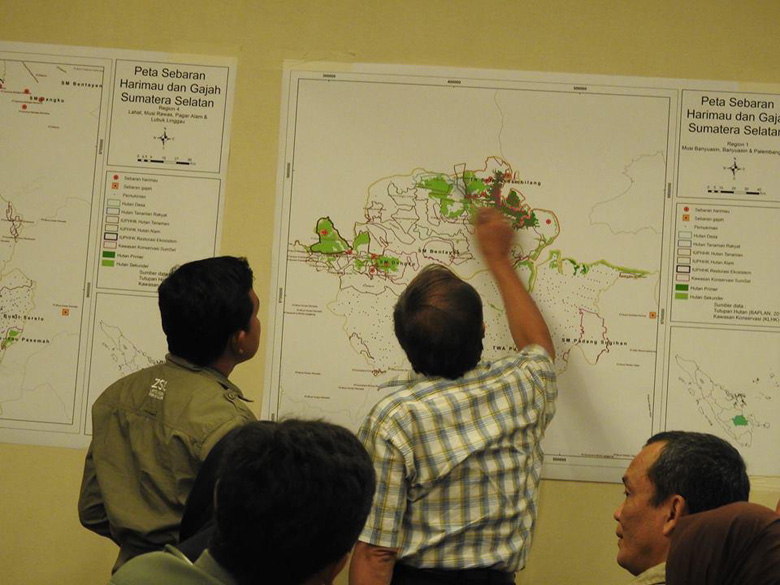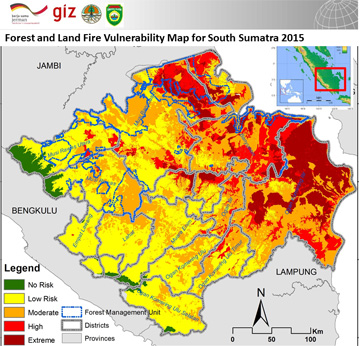‘Multi-door approach’ to address forest-related crimes in Indonesia
Every adversity is an opportunity in disguise. Today marks the International Day of Forests, a moment of global celebration to raise awareness of the importance of forests to the ecosystem and to humanity.
This day is of particular significance to Indonesia, home to the world’s third largest tropical forested area, and offers a great opportunity to highlight existing solutions to address one of the country’s most challenging issues: annual forest fires and forest-related crimes.
source: http://www.thejakartapost.com/news/2016/03/21/multi-door-approach-address-forest-related-crimes-indonesia.html
15 Bornean rhinos discovered in Kalimantan?
Indonesia’s environment and forestry ministry will convert a former gold mining site into a sanctuary for the Sumatran rhinoceros in East Kalimantan province, after conservationists identified 15 of the critically endangered creatures in the area.
The Sumatran rhino (Dicerorhinus sumatrensis) was until recently believed to be extinct in Kalimantan. Then in 2013, scientists on an orangutan search discovered rhino footprints in the Kelian Protected Forest in West Kutai district.
Source: http://news.mongabay.com/2016/03/a-new-sanctuary-for-the-sumatran-rhino-in-borneo/
$1m for devising best way to map Indonesia’s peatlands
Want to make a million dollars? Find the most efficient way to map Indonesia’s peatlands.
That’s the ticket to winning the Indonesian Peat Prize, announced by the cartographically challenged Southeast Asian country last month.
The competition will establish a national standard for mapping peatland extent and thickness, a process deemed essential to stopping the annual forest and peat fires which grow more devastating by the year. Last dry season, they burned an area the size of Rwanda, afflicted half a million people with respiratory problems, pumped an enormous amount of carbon into the atmosphere and cost Indonesia $16 billion, according to government and World Bank figures.
source: http://news.mongabay.com/2016/03/1m-for-devising-best-way-to-map-indonesias-peatlands/
Govt to revise wildlife law as protected animals face extinction
After the deaths in rapid succession of Sumatran elephants and other protected animals over the past few years, the government and the House of Representatives have agreed to revise the natural resources conservation law to place heavier sanctions on hunters and traders.
Environment and Forestry Minister Siti Nurbaya Bakar said on Monday that the government and the parliament were in the process of revising Law No. 5/1990 on natural resources and ecosystem conservation.
source: http://www.thejakartapost.com/news/2016/03/01/govt-revise-wildlife-law-protected-animals-face-extinction.html
Minister orders early containment of fires in Kalimantan, Sumatra
The Home Ministry has ordered local administrations in Kalimantan and Sumatra to launch preventive measures to contain forest fire after the National Disaster Mitigation Agency (BNPB) discovered a growing number of hot spots in the two provinces.
In Sumatra, small fires were detected in 68 locations on Sunday, which, if not tackled immediately could grow bigger to become forest fires in the near future. Satellite data also showed 38 hot spots in East Kalimantan and one in North Kalimantan on the same day.
source: http://www.thejakartapost.com/news/2016/02/29/minister-orders-early-containment-fires-kalimantan-sumatra.html
Western peatland management standards not suitable in Indonesia: researcher
The world’s two largest palm oil producers, Indonesia and Malaysia, should not follow European standards of peatland management due to the different climate and land characteristics of the two continents, a researcher has said.
According to Lulie Melling, a researcher at Tropical Peat Research Laboratory, most peatland in Europe was mild shallow-peatland, consisting of low vegetation such as grasses with short roots and branches.
source: http://www.thejakartapost.com/news/2016/02/25/western-peatland-management-standards-not-suitable-Indonesia-researcher.html
Healthy forests for healthy lives
There is a very effective way to combat deforestation: trading chainsaws for stethoscopes.
In Sukadana village, located at the foot of Palung Mountain National Park in West Kalimantan, doctors, environmentalists and local people work together to save the forest to save lives.
The non-profit organization, Alam Sehat Lestari (ASRI), combines forest-protection methods with proper and affordable health care as it believes that there is a substantial link between human health and environmental health.
source: http://www.thejakartapost.com/news/2016/02/23/healthy-forests-healthy-lives.html
Rescuing Sumatran tigers on the Kampar peninsula
Traces of Sumatran tigers are found all over the peat zone of the Kampar peninsula in Riau, indicating the predators’ endless search for food and suitable habitats — and necessitating special rescue efforts.
Two pictures of a Sumatran tiger are stored on the cellphone of Safrina Ayu Trisnawati, who encountered the rare, protected animal. The first shows the tiger gazing at her phone camera amid thick haze. The second portrays its whole body, with the head covered by shrubs.
source: http://www.thejakartapost.com/news/2016/02/16/rescuing-sumatran-tigers-kampar-peninsula.html
Hundreds of flood victims evacuated in Bangka Belitung
Hundreds of residents of Lampur Village, Bangka Belitung province, were evacuated from their houses on Tuesday after water levels reaching up to 3 meters in height inundated the area.
source: http://www.thejakartapost.com/news/2016/02/09/hundreds-flood-victims-evacuated-bangka-belitung.html
Lack of land rights for local communities could scare away investment
3rd February 2016 / Morgan Erickson-Davis, Mongabay Staff Writer
A new report warns that conflict between companies and local groups in areas with insecure land tenure can be harmful for both parties.
- Analysts find that most conflicts that occur between development projects and local communities involve situations in which the communities lack rights to their land.
- These disputes could damage the financial bottom line of an operation, which may scare off future investment in a region.
- The report's authors say that this could serve as a wakeup call to governments, and provide further incentive to grant communities tenure to the land on which they have been living and depending for generations.
source: http://news.mongabay.com/2016/02/lack-of-land-rights-for-local-communities-could-scare-away-investment/
A new report warns that conflict between companies and local groups in areas with insecure land tenure can be harmful for both parties.








